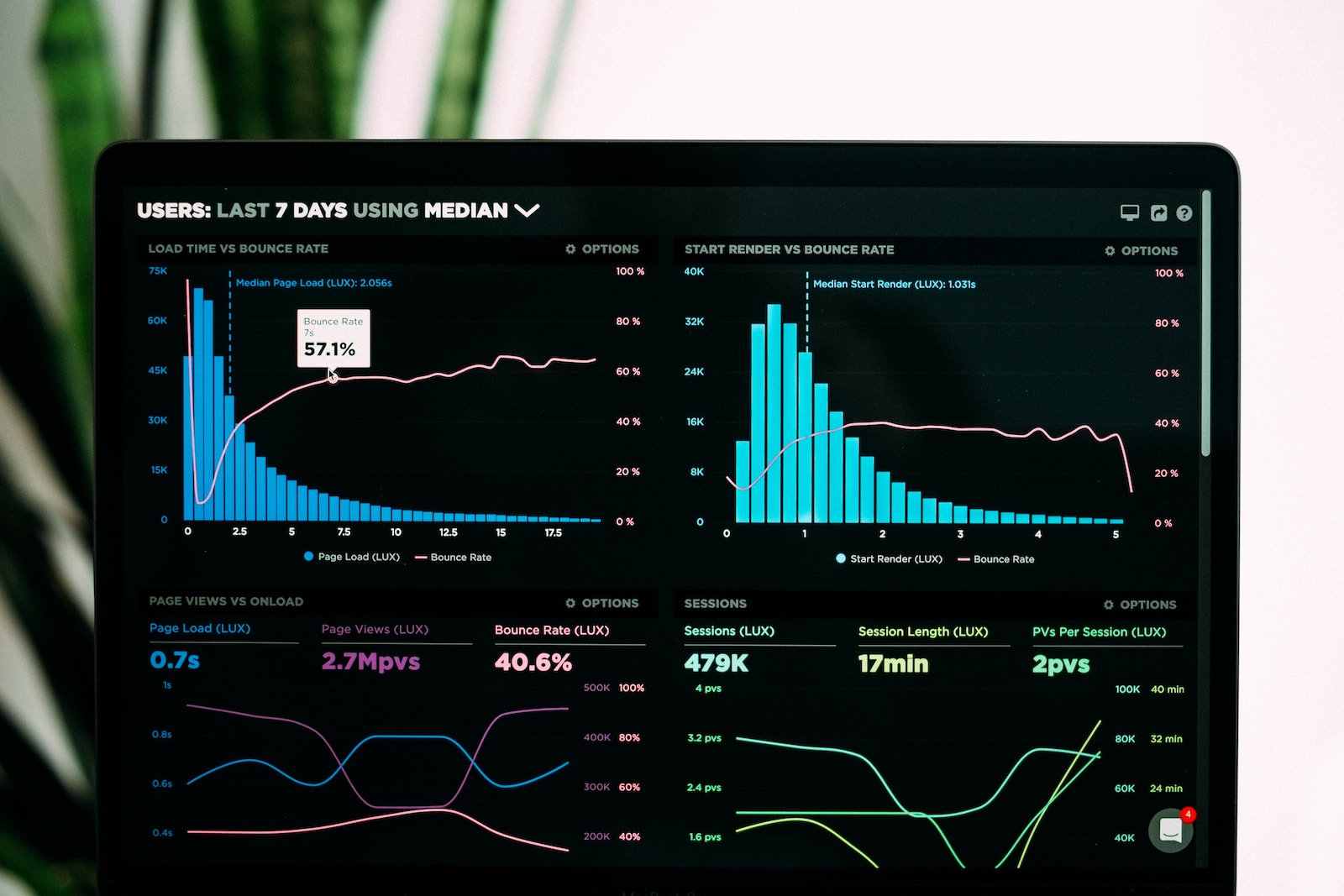The world of business has become increasingly data-driven. While big corporations have long leveraged big data, small businesses are now stepping into the game with predictive analytics. Predictive analytics involves using statistical algorithms and machine learning techniques to identify future outcomes based on historical data. For small businesses, this could be a game-changer. Let’s delve deeper into how predictive analytics can pave the way for small business success.
Understanding Predictive Analytics
Predictive analytics is not just about forecasting but understanding patterns and behaviors. By analyzing past data, businesses can make well-informed decisions about the future. It gives a glimpse of what’s likely to happen, allowing for better planning and strategy.
This process goes beyond traditional data analysis. Instead of just describing what happened, it provides a forecast of what might happen. It’s a proactive approach, putting the control back into the hands of business owners.
For small businesses, understanding and leveraging these predictions can be instrumental. It offers a competitive edge, enabling them to stay one step ahead of market trends and customer preferences.
Enhancing Customer Experience
Every customer interaction leaves behind a trail of data. Predictive analytics harnesses this data to offer insights into customer preferences, behaviors, and future needs. By understanding these patterns, businesses can tailor their services or products to meet specific customer requirements.
Offering personalized experiences is no longer a luxury but a necessity in today’s market. Customers expect brands to understand and cater to their needs. By utilizing predictive analytics, even small businesses can achieve this level of personalization.
By anticipating a customer’s next move or preference, businesses can improve their retention strategies, ensuring that customers remain loyal and engaged.
Streamlining Operations
Predictive analytics isn’t just customer-centric. It can be used internally to optimize operations. By analyzing operational data, businesses can identify bottlenecks, inefficiencies, and areas of waste.
For instance, by analyzing supply chain data, a business could predict when they’ll need to reorder stock or which products are likely to be in demand during a particular season. This proactive approach ensures smooth operations, reduces overhead costs, and prevents potential stockouts or excess inventory. We’ve made systems like a Pet Groomer CRM and a pet groomer ERP that help pet groomers manage their business and streamline operations by 30%-70%.
Predictive maintenance can be employed to anticipate when equipment might fail. This way, businesses can address issues before they escalate, saving time, resources, and money.
Financial Forecasting
Cash flow is a critical concern for any small business. Predictive analytics can offer valuable insights into future financial trends, helping businesses prepare and adjust their strategies accordingly.
By analyzing past sales, expenditure, and market trends, businesses can anticipate future revenues. Such forecasts allow for better budgeting, ensuring that funds are allocated effectively.
Additionally, understanding potential financial pitfalls in advance gives businesses the time to strategize and find solutions. Whether it’s an anticipated dip in sales or an unforeseen expenditure, being prepared can make all the difference.
Risk Management
Every business, regardless of its size, faces risks. Predictive analytics helps in identifying and assessing these risks in advance. By analyzing data from various sources, businesses can spot potential threats, be it in the form of market changes, operational issues, or external factors.
For small businesses, managing risks is even more critical given the limited resources. A single unforeseen setback can be devastating. By leveraging predictive analytics, businesses can mitigate risks, ensuring long-term stability and growth.
Predictive models can also assist in fraud detection. By monitoring transactions in real-time and comparing them to historical data, any anomalies can be flagged instantly, preventing potential losses.
Product Development and Innovation
Understanding market trends and customer preferences is crucial for product development. Predictive analytics provides insights into what customers might want in the future. By tapping into these predictions, businesses can develop products or services that resonate with their target audience.
Moreover, it’s not just about creating new products but refining existing ones. By analyzing customer feedback and usage patterns, businesses can make necessary modifications, ensuring their offerings remain relevant and competitive.
Innovation is the key to staying ahead in today’s fast-paced business world. Predictive analytics equips businesses with the knowledge to innovate effectively, meeting market demands head-on.
Marketing and Sales Optimization
Marketing campaigns can greatly benefit from predictive analytics. By understanding customer behaviors and preferences, businesses can create targeted campaigns that resonate with their audience. Predictive models can also help identify the best channels and times to reach potential customers, maximizing ROI.
Sales teams can use these insights to tailor their pitches and approaches. By knowing what a lead is likely to be interested in or their potential objections, salespeople can be better prepared, increasing their chances of closing a deal.
Furthermore, by segmenting customers based on their predicted behavior, businesses can create specialized campaigns, offering promotions or deals to specific groups, ensuring higher engagement and conversion rates.
Talent Acquisition and Retention
Talent is the cornerstone of any thriving business. Predictive analytics has the potential to revolutionize the way businesses approach talent management. By utilizing vast amounts of data from various sources, companies can pinpoint the exact traits, skills, and experiences that lead to success within their specific industry and organizational culture.
The recruitment process can be greatly enhanced through predictive analytics. By sifting through data and identifying patterns, businesses can predict which candidates are more likely to be successful and stay with the company long-term. This not only leads to better hiring decisions but also saves costs in the long run.
On the retention front, understanding employee behaviors, feedback, and patterns can help organizations anticipate issues or dissatisfaction. By addressing concerns proactively, businesses can foster a positive work environment, ensuring that top talent remains committed and motivated.
Competitive Advantage
In the fiercely competitive world of business, standing out is imperative. Predictive analytics can be the differentiator that sets a company apart from its competition. By being able to forecast market trends, customer behaviors, and economic shifts, businesses can position themselves effectively, capitalizing on opportunities and steering clear of potential pitfalls.
Small businesses, in particular, need every advantage they can get to establish themselves in the market. Predictive analytics allows them to act on insights that might not be apparent at first glance. For instance, identifying a nascent market trend can allow a small business to be a first-mover, capturing a significant market share before larger competitors catch on.
Additionally, by understanding their competitors’ patterns and strategies, businesses can make counter-strategies. Whether it’s adjusting pricing, enhancing a product, or targeting a new demographic, predictive insights can guide businesses in making the most impactful decisions.
Decision-Making Backed by Data
In an era where information is abundant, making sense of it all can be daunting. Predictive analytics simplifies this by providing actionable insights. Decisions are no longer based on gut feelings or limited data but are instead informed by comprehensive analysis, ensuring that businesses are always making the most strategic choices.
For small businesses, the stakes are often high. Every decision can have lasting ramifications. Predictive analytics provides a safety net, ensuring that choices are proactive and strategically sound. By analyzing past patterns, businesses can forecast outcomes, ensuring they’re always moving in the right direction.
Moreover, having a data-backed approach instills confidence among stakeholders. Whether it’s investors, partners, or employees, knowing that decisions are made based on solid data fosters trust and ensures everyone is aligned towards the same goals.
Conclusion
Predictive analytics is not a luxury reserved for big corporations. Small businesses stand to gain immensely from its insights. From streamlining operations to enhancing customer experiences and mitigating risks, predictive analytics offers a roadmap to success. By embracing this data-driven approach, small businesses can chart a path of growth, innovation, and sustainability in an ever-evolving market.


